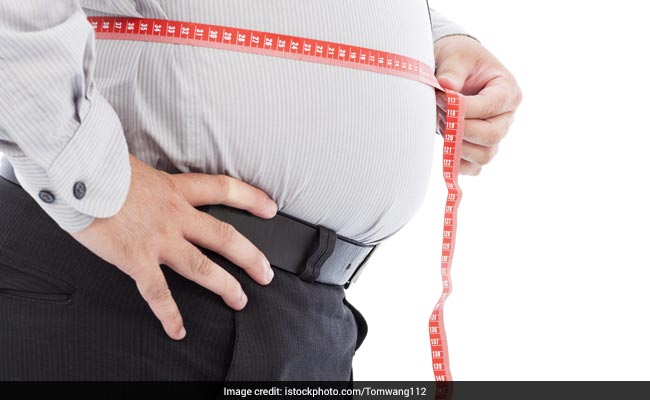Comprehending the Difference Between Bloating and Fat: an Essential Overview for Digestive Health And Wellness
Comprehending the difference between bloating and excess body fat is critical for any person concerned with gastrointestinal health and wellness. While bloating presents as a temporary and frequently uncomfortable condition, typically connected to nutritional habits or digestive disturbances, body fat represents a much more long-term adjustment in one's body.
Defining Bloating and Fat
Bloating and fat are two distinctive physiological sensations that can substantially impact a person's convenience and body photo. Bloating is generally a temporary occurrence and can change throughout the day, usually solving with lifestyle changes or medical treatments.
In contrast, body fat is an extra irreversible and stable element of human physiology, largely acting as a power book and playing vital functions in hormonal agent law and insulation. Body fat is identified right into two types: subcutaneous fat, which exists just underneath the skin, and natural fat, which surrounds inner organs. While excess body fat can bring about wellness difficulties, it is essential for general bodily features.

Sources Of Bloating

Furthermore, food intolerances, such as lactose or gluten intolerance, can cause bloating when the body has a hard time to refine specific materials - difference between bloating and fat. Consuming as well quickly or eating carbonated beverages can additionally worsen the problem, as these routines introduce excess air right into the gastrointestinal system
Lifestyle variables, including stress and lack of exercise, can even more add to bloating by affecting gut mobility. Particular medical conditions, such as irritable bowel syndrome (IBS) or intestinal obstruction, might also cause chronic bloating. Comprehending these reasons is important for efficiently managing and reducing bloating, enabling individuals to make informed dietary and way of living options that support their digestion health and wellness.
Signs of Bloating vs. Fat
Distinguishing between the symptoms of bloating and excess fat is essential for recognizing one's body and addressing pain successfully. Bloating typically offers as a feeling of fullness or stress in the abdominal area, commonly come with by visible distension. People might experience discomfort, cramping, and even discomfort, specifically after dishes. Bloating can additionally cause too much gas, resulting in burping or unwanted gas.
On try this web-site the other hand, excess fat shows up in different ways. While it may add to a feeling of heaviness, it normally does not create the intense pain linked with bloating. Rather, excess fat often tends to collect progressively, resulting in a change in body shape and size gradually. Individuals might see an increase in body area, especially around the waist, yet this does not usually existing with the instant sensations of volume or distension.

Identifying these differences is important. While bloating is often short-term and linked to dietary factors or gastrointestinal concerns, excess fat suggests an extra persistent condition needing way of life changes. Comprehending these signs and symptoms encourages individuals to seek suitable solutions customized to their certain problems concerning digestive health and wellness and body make-up.
Managing Bloating
Effective monitoring of bloating calls for a diverse technique that deals with both nutritional selections and way of life routines. Initially, it is vital to recognize and get rid of specific foods that may set off bloating, such as those high in fiber, gluten, lactose, or particular fermentable carbohydrates (FODMAPs) Keeping a food diary can aid identify these triggers and guide modifications.
Incorporating smaller sized, more regular dishes as opposed to big ones can likewise reduce bloating, as it reduces the digestive system process (bloating vs fat). Staying well-hydrated is vital, as sufficient fluid intake aids food digestion and assists stop bowel irregularity, which can add to bloating
In addition, taking part in routine exercise promotes stomach motility and minimizes bloating. Straightforward exercises, such as strolling or yoga, can successfully minimize pain. Conscious eating methods, such as eating slowly and eating food extensively, might even more improve digestion and limitation air swallowing.
When to Seek Assistance
Identifying when to look for clinical assistance for bloating is important, as persistent or serious signs and symptoms may suggest a hidden health issue. If bloating is gone along with by additional worrying signs such as significant abdominal discomfort, unusual weight-loss, rectal blood loss, or constant nausea or vomiting and throwing up, it is crucial to speak with a medical care specialist. These indications may suggest problems such as cranky digestive tract disorder, intestinal blockage, or also a lot more serious problems like cancer cells.
Moreover, if bloating lingers regardless of dietary changes or over the counter treatments, it calls for additional investigation. People with a history of gastrointestinal problems should be particularly attentive, as their danger for problems may be greater. Furthermore, if bloating occurs following the usage of details foods, it about his may indicate food intolerances or allergies that necessitate nutritional adjustments or testing.
Conclusion
In summary, differentiating between bloating and excess body fat is important for digestive system health and general well-being. Bloating, a temporary problem typically linked to dietary variables and gastrointestinal concerns, contrasts sharply with the steady buildup of body fat. Identifying the symptoms and underlying causes of each can assist in suitable management strategies. Individuals experiencing persistent or extreme symptoms must seek specialist assistance to deal with possible health and wellness worries successfully. Recognizing these differences you could try these out is essential for educated decision-making concerning health and way of living.